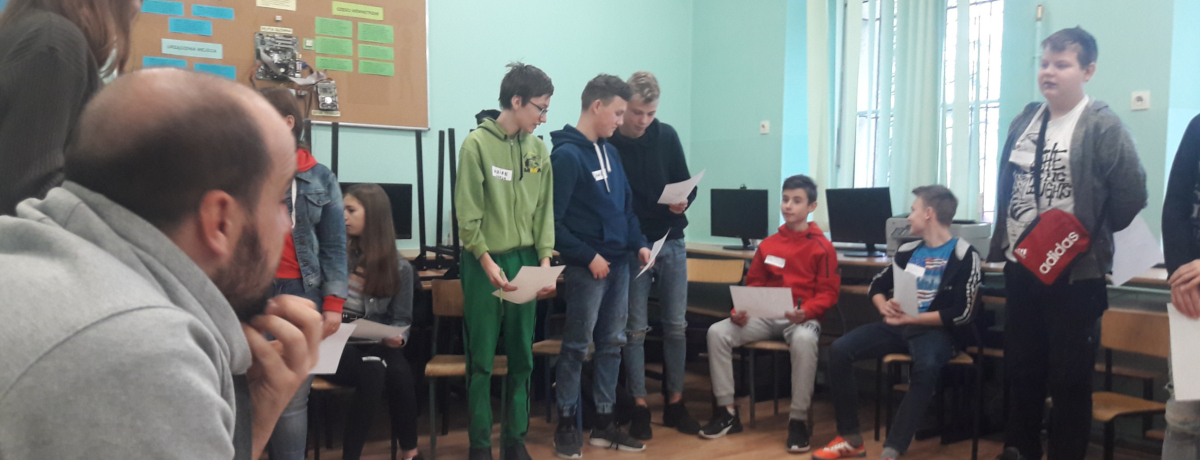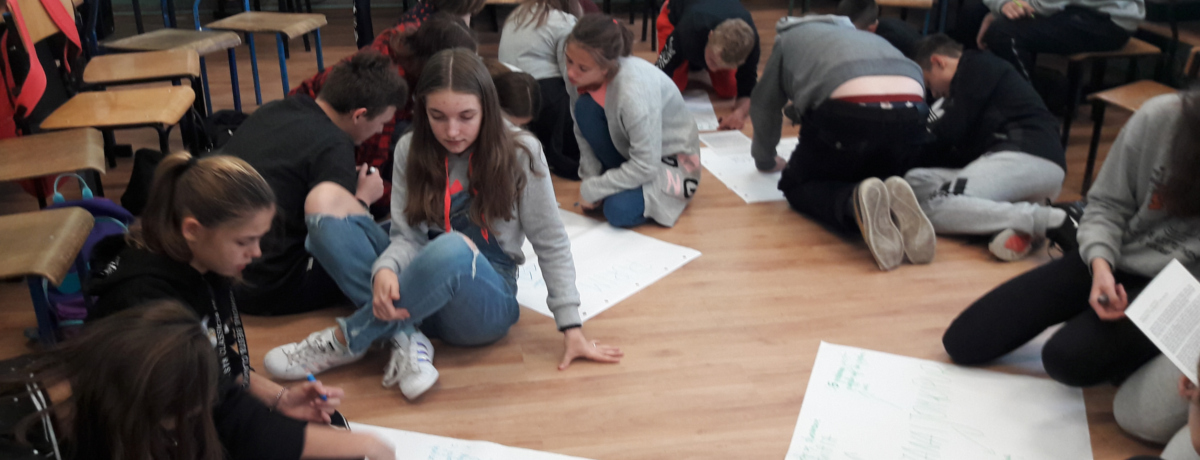| 2018 |
Janowo
Polish Marshall Józef Piłsudski Elementary School


| 2018 |
Not much is known about the Jewish history of Janowo, a town in Warmińsko-Mazurskie region. It is likely that 860 Jews lived there prior to the outbreak of World War II, although historical sources are contradictory and the number can be disputed. What can be said with all certainty is that the town had its own synagogue, whose building did not survive until the present; a residential house stands in its location now. The only tangible trace of Jewish presence in the town is the Jewish cemetery in its north-eastern part, with a few surviving headstones. The last funeral took place there in 1939.
Seventh-graders from Polish Marshall Józef Piłsudski Elementary School encountered this fragmentary information and found no material references to Jewish life in Janów when working on their School of Dialogue project. The initially abstract image of the local Jewish community took on more concrete shape as they uncovered the town’s various mysteries.
Through their quest for information school students found information about a mill owner by the name of Lipszyc as well as his family: three daughters and one son. The older daughters ran a haberdashery, while the son helped out at the mill.
Students also recovered two letters addressed to two local residents, Adam Wyszkowski and his wife Aurelia, written by sons of rabbi Weksler from Palestine. The men’s mothers had become good friends as apprentices learning tailoring, sewing and handicrafts, hence the contact between the two families.
These real-life stories offered students personal connections to Jewish Janów and inspired them to make a film, which documented student-led interviews with Janów’s eldest citizens in an effort to collect information about families that had once inhabited the town.

To create their tour’s itinerary, students divided themselves into teams responsible for each of the respective stops. The map that served as their guide to the town had most likely been drawn in mid-19th century, when Janów still had city privileges. The tour began at the old mill owned by the Lipszyc family, which is now a health center, and took participants around the different streets in search of traces of the past. On Mławska, which had once been Warszawska street, students found three houses with mezuzah indentations in their doorframes! Other stops included locations of the former synagogue and mikveh. The tour ended at the Jewish cemetery, where students left symbolic stones on the headstones.
Throughout the tour, student guides acted like professionals, describing the sites visited as well as Jewish holidays and customs, drawing on the knowledge they gained in the course of School of Dialogue workshops.
Local residents and municipal as well as institutional representatives joined the tour alongside school students.
However, mere stories about the synagogue were not enough for project participants – basing on the collected information, they decided to construct a model of the synagogue, a material trace of the project that has now been donated to the school’s hall of memory.
Students also took care of the sole site bearing testimony to Jewish presence in their town – the Jewish cemetery, conducting cleanup works and leaving symbolic stones on each of the headstones.
All students’ activities along with all traces of the local Jewish community were documented in a leaflet distributed among tour participants, who were greatly impressed by the amount of information about Janów that their tour guides had amassed.

School: Polish Marshall Józef Piłsudski Elementary School
Students: students from different grades
Teacher: Małgorzata Słomkowska
Educators: Magdalena Ogieniewska, Stanisław Niemojewski
Project cofinanced thanks to the generosity of Friends of the Forum, Conference on Jewish Material Claims Against Germany and individual donors and institutions from Poland and abroad supporting Forum for Dialogue.
In appreciation to the Conference on Jewish Material Claims Against Germany (Claims Conference) for supporting the School of Dialogue educational program. Through recovering the assets of the victims of the Holocaust, the Claims Conference enables organizations around the world to provide education about the Shoah and to preserve the memory of those who perished.